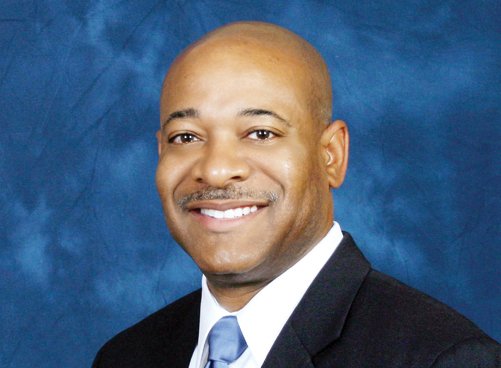Level the education playing field
3/19/2015, 12:52 p.m. | Updated on 3/20/2015, 2:30 p.m.
BRIAN L. PAULING
I am saddened and frustrated every time I hear about the academic achievement gulf that exists between black students and their white classmates in our nation’s public schools. I am saddened because I know that, without a quality education, the future for these children is bleak. I am frustrated because if we don’t do something now, we will continue to fail these children in a way that will cause irreparable harm to them, their families — both current and future — our communities and the world.
That’s why 100 Black Men of America Inc., The 100, is issuing a clarion call to all Americans who share our concern about the fate of our children and communities to raise their voices with ours to bring attention to one of the most critical civil rights issues of our time — education equity.
The reason is as clear cut as it is troubling. Far too many low-income and black youths are languishing in failing schools. This places them at a severe disadvantage in achieving their full potential, becoming leaders in their communities and competing in a global economy. No child’s future should be determined by his or her color, economic status or ZIP code. To The 100’s network of more than 100 chapters around the world, this is appalling and unacceptable! We need organizations and caring adults to join us in a collective effort for systemic and sustainable education reform.
The 100’s 50-year history of mentoring African-American youths has given us a unique perspective on what is and isn’t working in many of the nation’s public schools through the experiences of the young people we serve.
Although the high school dropout rate is improving, it still is not where it should be. It is also disturbing that, of those African-American youths who successfully graduate from high school, far too many are woefully unprepared for freshman-level college coursework.
As a result, they are required to complete remedial classes as a prerequisite for acceptance into post-secondary institutions. Some find themselves so far behind that it seems impossible to catch up. Not only does this situation shatter their self-esteem, it also suffocates their desire to even try. Rather than face the humiliation of trying to catch up to their peers, some simply give up and drop out.
While there is no silver bullet or quick fix to these problems, we believe the journey toward solutions begins with creating high-performing schools — schools, for example, that promote high student expectations and achievement, insist on teacher accountability through regular evaluations and encourage innovation among principals and other school leaders.
The 100 has been a longtime supporter of traditional public schools, where most of the youths we serve attend. While each of our chapters is deeply rooted and involved in their communities, true education reform requires a collective effort from like-minded organizations and individuals.
To that end, during The 100’s Education Summit last October in Washington, D.C., members from across the country met with leaders from several nonprofit, education and civil rights organizations to explore ways to collaborate, mobilize and advocate for action that leads to positive, tangible and lasting change.
During our discussions, areas of agreement included advocating for public school education options for parents and their children. Our youths should not be doomed to 13 years — between kindergarten and senior year — of academic failure. We will remain committed to supporting those public schools that are high performers and able to demonstrate exceptional and measurable academic outcomes for our children — or those that are executing a plan to successfully reach that goal.
When traditional public schools fail to perform at high levels, our organization supports educational alternatives, including successful nonprofit charter schools. We also need to encourage nonprofit public charters and traditional public schools to collaborate and share best practices that have proven to be successful in educating low-income and black children.
No matter which type of schools parents and guardians ultimately decide are best for their children, all public schools — particularly those in African-American and economically disadvantaged communities — must be high-performing, evidence-based institutions of learning, where children are prepared to advance successfully to the next grade level, graduate from high school and progress seamlessly into college and career.
The time is now — before another child’s future is lost— to raise our collective voices in advocacy and take action so that high-performing public schools in our communities become the norm rather than the exception. While this task may seem daunting, our children’s futures, quality of life and, in some cases, their very lives are at stake.
Brian L. Pauling is national president of 100 Black Men of America Inc.







